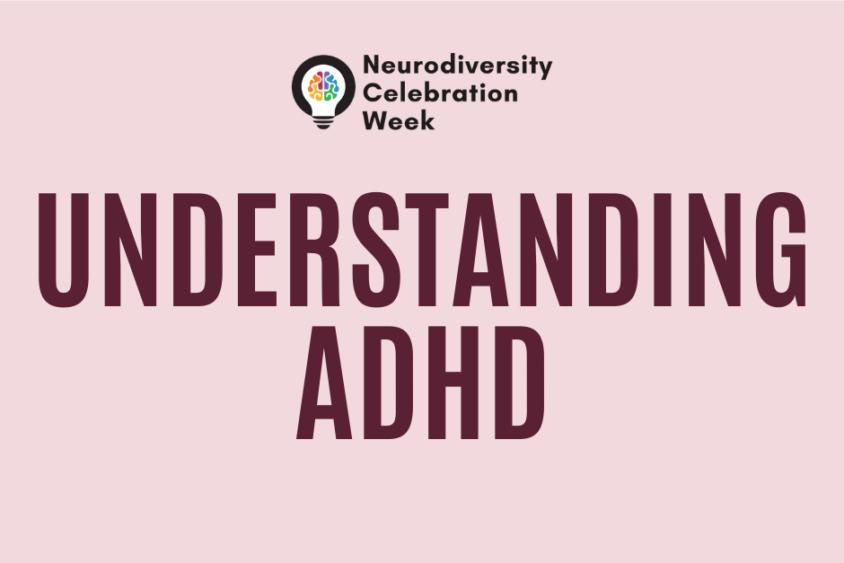Neurodivergence. Neurodiversity. Two words that weren’t around much when I was growing up but are ubiquitous now. But even though these words are in the public sphere more than ever, it’s hard to find someone who can pin down exactly what they mean. My own parents, one of whom is neurodivergent themselves, would struggle to give a straight answer. This is quite extraordinary considering that 15–20 per cent of the general population is neurodivergent.
If I use different words, like ADHD (attention deficit hyperactivity disorder), autism spectrum disorder, dyslexia, obsessive compulsive disorder, Tourette’s, dyscalculia or dyspraxia, people are more likely to know what I am talking about.
Neurodivergence is a spectrum, first of all, and includes a variety of conditions, some of which are well-hidden. Some people are high-functioning, while others can be so impacted that they need round-the-clock support and care. I am quite lucky and get by—but that doesn’t mean I have no symptoms at all.
I have known I have ADHD since I was about eight years old. I was at times (and I say this as a secondary school teacher) probably a nightmare to have in the classroom. My first primary school toyed with the idea of sending me to alternative education when I was four. Eventually, I received a diagnosis of ADHD, which explained a lot and gave us a way to start. I had lessons on how to behave and was given extension tasks in school, which helped but didn’t solve everything. I struggled in primary and secondary school, mostly socially, and during my undergraduate degree. Eventually, at university, I was also told I was on the autism spectrum, a second diagnosis which explained things even further. While having a label doesn’t fix everything, it did provide me with recognition and a reason as to why I do things the way I do—different from the, as we say, ‘neurotypicals’.
When I found out about the magistracy and that I could, in theory, join, I was both excited and doubtful. One of the symptoms of ADHD is low self-esteem, which caused me to think things like: “I will never get through the interviews”, “I won’t be good enough” and so on. However, with some prodding and convincing I applied, and was appointed in early 2021. Becoming a magistrate brings me immense satisfaction, yet to this day I still struggle with imposter syndrome.
In simple terms, ADHD is a neurological disorder that affects people’s behaviour, characterised by trouble concentrating, hyperactivity and impulsivity. Although the cause is not fully understood, research has shown a link between ADHD and a lack of dopamine, the neurotransmitter responsible for feelings of happiness and contentment.
People with ADHD often struggle with executive dysfunction—basic tasks that are very straightforward for neurotypical people, can seem very complicated and overwhelming for people with ADHD. This includes things like taking a shower, joining a conversation, or following a schedule. It can also be things like trying to remember why you got up, finding motivation to do minor tasks, controlling frustration when a task doesn’t work immediately, or explaining how you feel and why you feel that way.
For me, it means that sometimes following a conversation is hard, because I don’t quite know when to join in, or I am focusing so much on what I want to say that I can’t listen to what is being said. It means that even if I really want to listen to something, I cannot help but lose focus if there’s a distraction in the room. The laundry might need hanging and I might want to do it, but because it’s a low reward task, I struggle to take the specific steps to get off the sofa, stand up, walk over—and sometimes by the time I get there, I spot a dirty dish and I’m doing the dishes instead, laundry forgotten.
How does all of this translate to the court system? I am fortunate to have received invaluable support from my mum, who taught me that the world won’t adapt for us, we have to adapt to the world. I have my strategies to keep me focused in court: I write everything down in a colour-coded system. And I mean everything—I have on numerous occasions been told my notes are extremely detailed or been complimented on how useful they were when writing up a judgment. At times I still struggle, but it does help. I really enjoy the role, and I want to be good at it.
Now, the defendant, the person on the other side of the bench cannot always take notes or doesn’t know to. I remember a case not long ago, where the defendant’s counsel said they suspected he had ADHD. I could tell he did—he wanted to focus, but simply couldn’t. Each time the list caller moved; he saw it. When the chair said something along the lines of, “The starting point for carrying a knife is six months custody, however, in this case…” the defendant visibly panicked. I understood this to be because after those few words, he could no longer pay attention. He only took in the first part and didn’t get to the “however.” Again, not because he did not want to, but because his brain went that way. Luckily, he had an understanding lawyer, who explained everything later on.
I went home frustrated, because it was yet another young person with ADHD in the dock, and I felt it sent out a negative connotation of people with ADHD. It was only after my partner pointed out the statistics, that I realised that because we often have low impulse control, we may be more likely to commit more crimes. Around 25 per cent of adults in prison have ADHD, compared to just 2.5 per cent of adults in the general population. Generally speaking, people equate ADHD with inattentiveness and fidgeting. Really, it’s far more. We struggle to regulate emotions, with working memory, executive dysfunction, impulsivity, and, not in the least, with social skills. Logically, some of these things will get us into trouble, especially combined with the heightened sense of justice shown by many people with ADHD. We will, without thinking, try to break up a fight or stand up for something—in some cases, this may be in the wrong place and at the wrong time.
So, what can we do as magistrates when we encounter defendants (or other magistrates) with ADHD? First of all, don’t judge. Secondly, try ‘chunking’—this is something I do when teaching, too. Split up large chunks of information into smaller chunks and pause in between. If you notice the defendant has lost focus, say their name so they can refocus. Ask them if they’ve understood, and make sure of it—perhaps ask them to repeat what was said. Be patient. If they fail to make eye contact, if they don’t look interested, if they blurt things out: it is because they cannot control these things. Thirdly, if possible, keep distractions and movements to a minimum in court. Any movement—whether the public galleries, the list caller, probation—I will have noticed, and so will they. The equal treatment bench book gives a brief explanation of ADHD and provides guidance on how best to help. It suggests quiet rooms, and brief breaks to refocus, or even to let the defendant take notes before answering questions.
ADHD and neurodiversity aren’t all doom and gloom though. I’m 33, have lived in three countries, I’m a good teacher and a magistrate. If you need clothes fixed, I sew. I also knit, crochet, run, swim, play the flute, make terrariums, draw, do calligraphy and lettering, make my own noodles… the list goes on. I like to be stimulated and if I like something, I will read and learn everything I can about it. I have, however, been lucky—I’ve received support from a warm family and a loving partner, and still do. Not everyone is that lucky, and many are not even aware they are neurodivergent. As my final words of wisdom, I would ask you to always be patient and respect that neurodivergence is not a choice.
Further reading
This article was originally published in the Winter 2023 edition of Magistrate, our magazine for MA members.


